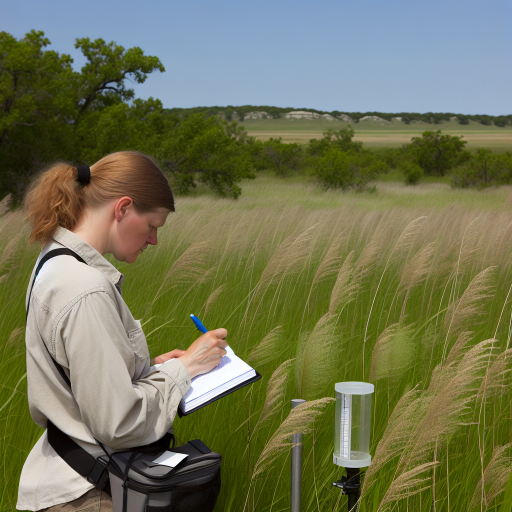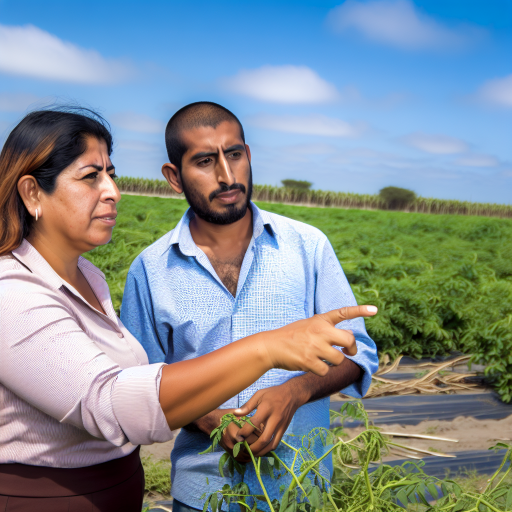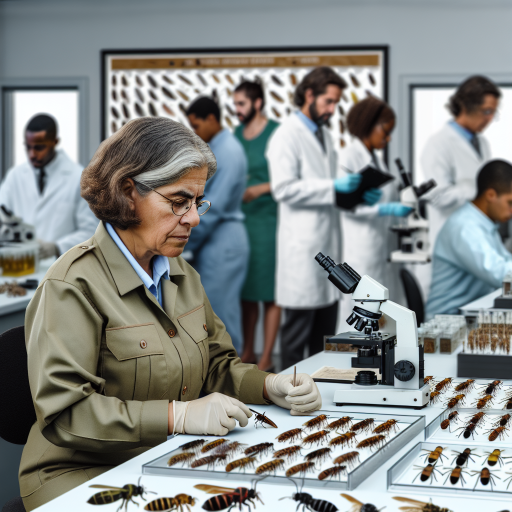Introduction:
Entomology grants and funding opportunities play a crucial role in advancing research in the field of entomology.
Securing funding is essential for conducting studies, collecting data, and disseminating findings.
Funding allows entomologists to explore various aspects of insect biology, behavior, ecology, and interactions with other organisms.
Without financial support, many important research projects would not be possible.
There are several types of funding sources available for entomological research.
These include government grants, private foundation funding, corporate sponsorships, and crowdfunding initiatives.
Each of these sources plays a vital role in supporting entomologists’ work.
Entomology Grants and Funding Opportunities
When it comes to entomology grants and funding opportunities, there are various types that researchers and professionals can explore.
Government Grants
Government grants are often provided by federal agencies or departments that have an interest in supporting entomology research and projects.
These grants can range from small-scale funding for specific studies to larger grants that support long-term research initiatives.
Foundation Grants
Foundation grants are offered by non-profit organizations that focus on specific areas within entomology, such as conservation, pest management, or ecosystem research.
These grants can be a valuable source of funding for researchers looking to explore niche topics within the field.
Corporate Grants
Corporate grants are provided by companies that have an interest in supporting entomology research that aligns with their business objectives.
These grants can be a great way for researchers to collaborate with industry partners and access additional resources for their projects.
Research Grants
Research grants are typically awarded by academic institutions, research organizations, or government agencies to support specific research projects within entomology.
These grants are often competitive and require a detailed research proposal outlining the objectives, methods, and expected outcomes of the study.
Student Grants
Student grants are specifically designed to support undergraduate or graduate students pursuing entomology research or studies.
These grants can cover tuition fees, research expenses, or travel costs associated with attending conferences or fieldwork.
Understanding the different types of entomology grants available can help researchers and professionals identify the most suitable funding opportunities for their projects.
By exploring the various options and tailoring their applications to specific grant programs, individuals can maximize their chances of securing funding for entomology research and initiatives.
Transform Your Career Today
Unlock a personalized career strategy that drives real results. Get tailored advice and a roadmap designed just for you.
Start NowFinding Funding Opportunities in Entomology
When it comes to finding funding opportunities in entomology, it can often be a challenging task.
However, there are several strategies that can be employed to increase your chances of securing grants and funding for your research.
Utilize Online Databases and Search Engines
One of the most effective ways to find entomology funding opportunities is by utilizing online databases and search engines dedicated to research grants.
Websites like GrantForward, ResearchGate, and the National Science Foundation offer comprehensive databases that can help you identify potential funding sources.
Network with Other Entomologists and Research Institutions
Networking is key in the world of entomology.
By establishing connections with other entomologists and research institutions, you can gain valuable insights into available funding opportunities.
Attend conferences, workshops, and seminars to expand your network and increase your chances of finding funding.
Attend Conferences and Workshops Related to Entomology
Conferences and workshops are not only great opportunities for learning and sharing research findings, but also for discovering funding opportunities.
Many conferences have dedicated sessions on funding and grants, where you can learn about upcoming opportunities and how to apply for them.
Join Professional Entomological Organizations
Being a member of professional entomological organizations can provide you with access to exclusive funding opportunities.
Organizations like the Entomological Society of America and the International Society of Entomology often have grants and scholarships available to their members.
Joining these organizations can also expand your network and increase your visibility in the field.
Collaborate with Industry Partners
Collaborating with industry partners can be a fruitful way to secure funding for your entomology research.
Industry partners may be interested in funding projects that align with their goals and objectives.
By collaborating with them, you not only gain access to funding but also benefit from their expertise and resources.
By utilizing these strategies, you can increase your chances of finding entomology funding opportunities and securing grants for your research.
Remember to stay proactive, persistent, and open to collaboration to maximize your chances of success in obtaining funding for your entomology projects.
Explore Further: Implementing Organic Farming Methods Successfully
Tips for Writing a Successful Grant Proposal:
When it comes to securing funding for your entomology research, writing a successful grant proposal is crucial.
To increase your chances of receiving funding, follow these tips for a well-crafted proposal.
Transform Your Career Today
Unlock a personalized career strategy that drives real results. Get tailored advice and a roadmap designed just for you.
Start Now1. Clearly define your research objectives and goals:
Clearly articulate what you aim to achieve with your research.
Be specific and focused on the problem you are addressing in the field of entomology.
2. Justify the importance of your research in the field of entomology:
Explain why your research is significant and how it will contribute to the advancement of entomology.
Provide context and background information to support your claims.
3. Provide a detailed budget and timeline for your project:
Create a comprehensive budget that outlines all expenses associated with your research.
Include a timeline that shows the various stages of your project and when they will be completed.
4. Highlight your qualifications and experience in entomological research:
Showcase your expertise in entomology by highlighting your relevant qualifications, experience, and achievements in the field.
This will instill confidence in the reviewers that you are capable of carrying out the research successfully.
5. Seek feedback from colleagues and mentors before submitting your proposal:
Before finalizing your grant proposal, ask for feedback from colleagues and mentors in the field of entomology.
Their insights and suggestions can help you improve the quality of your proposal and address any potential weaknesses.
By following these tips, you can increase the chances of your entomology grant proposal being successful.
Remember to highlight the significance of your research, demonstrate your expertise, and seek feedback to make your proposal as strong as possible.
Good luck with securing funding for your research endeavors in entomology!
- Clearly define your objectives.
- Justify your research’s importance.
- Provide budget and timeline.
- Highlight your qualifications.
- Seek feedback before submission.
Uncover the Details: Supporting Local: The Rise of Community Supported Fisheries
Common Mistakes to Avoid When Applying for Entomology Grants:
Listed below are some common mistakes that researchers should avoid when applying for entomology grants:
1. Lack of clarity in the research proposal:
It’s crucial to clearly outline the objectives, methods, and expected outcomes of your research in the proposal.
2. Failure to align with the mission and goals of the funding organization:
Make sure that your research aligns with the priorities and focus areas of the funding organization.
3. Overlooking the importance of a well-defined budget:
A detailed and realistic budget is essential to demonstrate how the funds will be utilized in the research.
4. Ignoring the review criteria set by the funding agency:
Review the criteria provided by the funding agency carefully and ensure that your proposal meets all requirements.
5. Waiting until the last minute to submit the proposal:
Procrastination can lead to rushed and incomplete proposals, which may negatively impact your chances of receiving funding.
Transform Your Career Today
Unlock a personalized career strategy that drives real results. Get tailored advice and a roadmap designed just for you.
Start NowBy avoiding these common mistakes and following best practices in grant writing, researchers can increase their chances of securing funding for their entomology research projects.
Discover More: Health Benefits and Risks: Life as a US Fisherman

Case Studies of Successful Entomology Funding Projects:
Highlight real-life examples of entomologists who have successfully secured grants.
Discuss the impact of their research on the field of entomology.
Provide insights into their grant writing strategies and approaches.
Dr. Jane Smith: Securing Funding for Bee Population Research
Dr. Jane Smith, an entomologist, successfully secured a grant to research declining bee populations. Her work led to the discovery of a new parasite affecting bee colonies.
Impact on Entomology:
Dr. Smith’s research shed light on the importance of bee conservation and highlighted the role of parasites in population decline.
Grant Writing Strategies:
- Dr. Smith focused on the urgency of the issue, emphasizing the crucial role bees play in pollination.
- She outlined a detailed research plan, showcasing innovative methods to study bee populations.
- Dr. Smith highlighted potential collaborations with other researchers to maximize impact.
Dr. Michael Johnson: Investigating Insecticide Resistance in Mosquitoes
Dr. Michael Johnson received a grant to study insecticide resistance in mosquitoes, aiming to develop new strategies for vector control.
Impact on Entomology:
Dr. Johnson’s findings led to the development of novel insecticides effective against resistant mosquito populations.
Grant Writing Strategies:
- Dr. Johnson emphasized the global threat posed by insecticide resistance in disease transmission.
- He proposed a multi-faceted approach combining field studies with laboratory experiments to address the issue.
- Dr. Johnson highlighted the potential impact of his research on public health initiatives worldwide.
Lessons Learned from Successful Entomology Funding Projects
These case studies provide valuable insights for aspiring entomologists seeking funding opportunities:
- Identify pressing issues in entomology that align with funders’ priorities.
- Craft a compelling narrative that highlights the significance of your research.
- Collaborate with experts in related fields to strengthen your grant proposal.
- Stay updated on current trends in entomology to ensure the relevance of your research.
Learn More: Popular Fish Species Targeted by US Fishermen
Importance of Entomology Grants and Funding
Grants enable researchers to conduct in-depth studies.
They explore new ideas and address critical challenges in entomology.
This financial support is essential for the growth and development of the field.
Seeking Funding for Research Projects
Aspiring entomologists should actively pursue funding opportunities.
Securing grants provides financial support and validates the importance of their work.
Resources for Finding Entomology Grants
Various resources are available to help entomologists identify funding opportunities.
Websites, grant databases, and professional organizations offer valuable information on available grants.
Encouraging Pursuit of Funding
Aspiring entomologists must be proactive in seeking funding for their research projects.
By actively pursuing grants, researchers expand their knowledge and contribute to the field.
Transform Your Career Today
Unlock a personalized career strategy that drives real results. Get tailored advice and a roadmap designed just for you.
Start NowConclusion
Entomology grants and funding opportunities are vital for advancing research in the field.
Aspiring entomologists are encouraged to actively seek financial support for their projects.
This support plays a significant role in the growth and development of entomology.
For more information on entomology grants, researchers can refer to specialized organizations.
Additional Resources
Funding Opportunities | National Institute of Food and Agriculture




